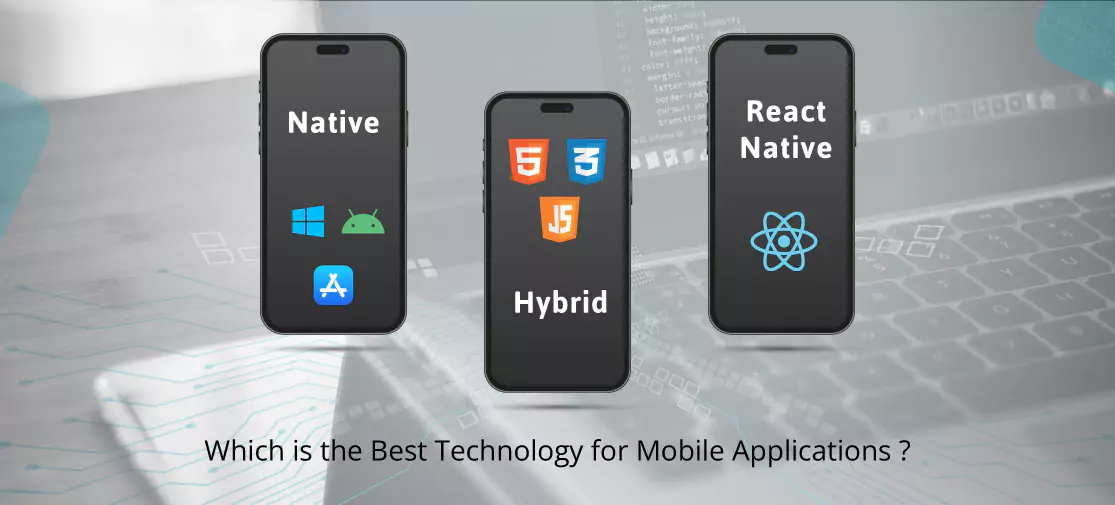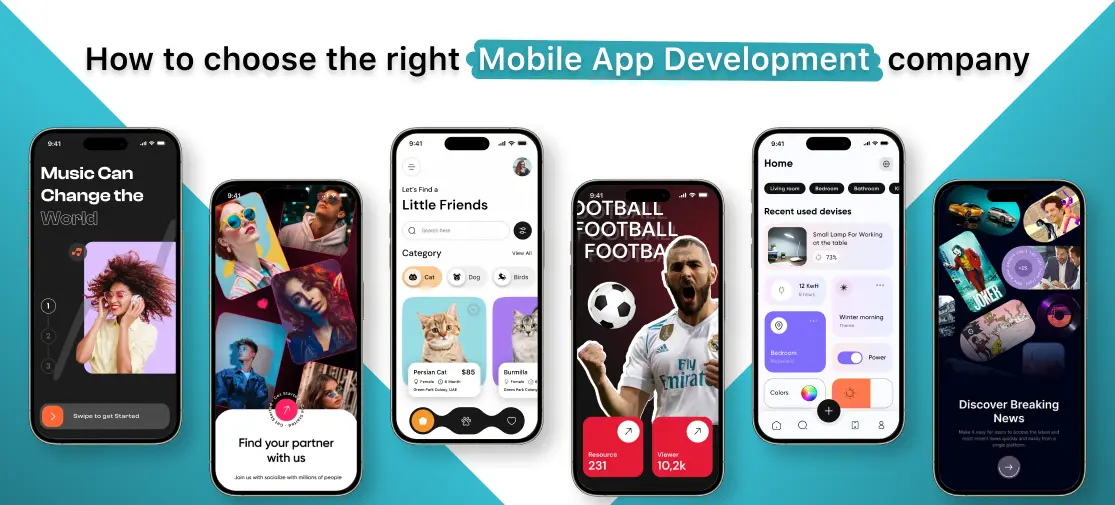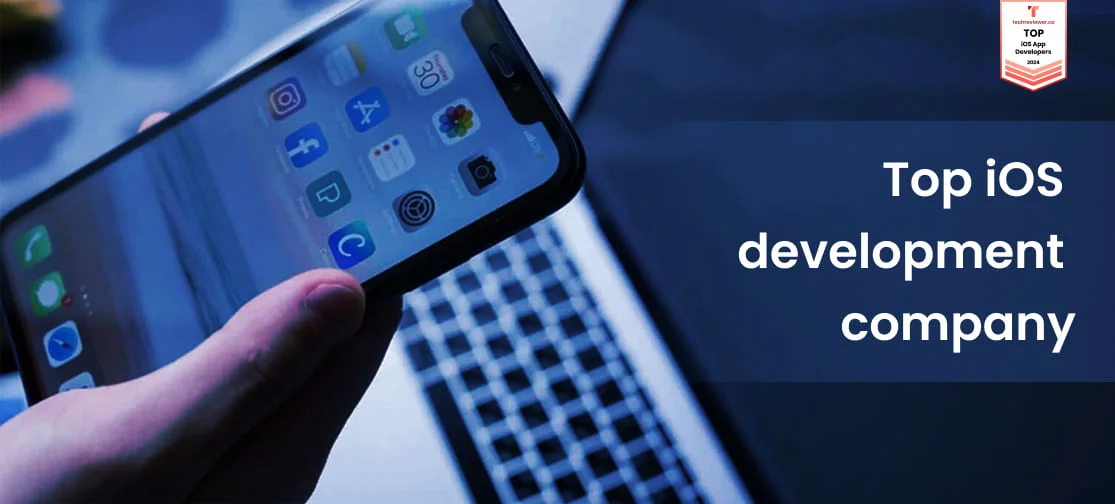Native apps vs. hybrid apps: making the right choice for android, ios, and react native
In today's fast-paced digital landscape, mobile applications have become an integral part of our lives. Whether it's for communication, productivity, entertainment, or e-commerce, mobile apps are the go-to solution for most of our daily tasks. When businesses decide to develop a mobile app, a crucial question arises: Should they go for native apps or hybrid apps? This blog post aims to dissect the pros and cons of each approach for Android, iOS, and React Native development, helping you make an informed decision.
Understanding native apps
Native apps are developed specifically for a particular operating system (OS) using platform-specific programming languages and tools. For Android, developers typically use Java or Kotlin, while Swift or Objective-C is used for iOS development. Native apps are optimized for the OS and take full advantage of its capabilities, providing the best possible performance and user experience.
Advantages & disadvantages of native apps
Advantages of native apps
- Optimal performance: Native apps are tailor-made for their respective platforms, ensuring maximum performance. They run smoothly, respond quickly to user input, and offer a seamless experience.
- Access to device features: Native apps have unrestricted access to device features like the camera, GPS, accelerometer, and more, allowing developers to create feature-rich and highly interactive applications.
- Platform-specific design: Native apps can adhere to platform-specific design guidelines (Material Design for Android and Human Interface Guidelines for iOS), ensuring a consistent and visually appealing user interface.
- Enhanced security: Native apps benefit from the robust security features provided by the OS, making them less vulnerable to external threats.
- Offline functionality: Native apps can work without an internet connection, which is crucial for applications that need to function in remote areas or during network outages.
Disadvantages of native Apps
- Development time and cost: Building separate apps for Android and iOS requires more time and resources, leading to higher development costs.
- Maintenance complexity: Maintaining two separate codebases can be challenging, as updates and bug fixes must be implemented on both platforms independently.
- Limited code reusability: Code reusability is minimal in native app development. The code for Android cannot be directly used for iOS, and vice versa.
The rise of hybrid apps
Hybrid apps aim to bridge the gap between native apps and web apps. They are built using web technologies such as HTML, CSS, and JavaScript and are then wrapped in a native container. This container allows the app to be distributed through app stores while rendering its user interface using web views.
Advantages & disadvantages of hybrid apps
Advantages of hybrid Apps
- Cross-platform compatibility: Hybrid apps can run on both Android and iOS with minimal code modifications, making them cost-effective and time-efficient.
- Faster development: Using web technologies allows for quicker development, as developers can reuse a significant portion of the codebase for multiple platforms.
- Single codebase: Maintaining a single codebase for both platforms reduces development and maintenance efforts, resulting in cost savings.
- Easier updates: Updates can be deployed faster, as changes to the codebase need to be made once, and they are automatically reflected on both Android and iOS.
- Access to plugins: Hybrid apps can tap into native device features and functionalities using plugins, allowing developers to leverage the device's capabilities.
Disadvantages of hybrid apps
- Performance limitations: Hybrid apps may not perform as well as native apps since they rely on web views to render the user interface. Complex animations and graphics may suffer from performance issues.
- Limited access to native features: While plugins provide access to some device features, they may not cover all functionalities, limiting the app's capabilities.
- User experience: Hybrid apps may not offer the same level of user experience and fluidity as native apps, which can affect user engagement and retention.
- Compatibility issues: Ensuring compatibility across various devices and OS versions can be challenging, leading to potential compatibility issues.
Enter react native
React Native is a popular framework that offers a compromise between native and hybrid app development. Developed by Facebook, React Native allows developers to write mobile apps using JavaScript and React, while still rendering native components and leveraging the full potential of the device.
Advantages & disadvantages of react native
Advantages of react native
- Code reusability: With React Native, a significant portion of the codebase can be reused across Android and iOS, reducing development time and costs.
- Near-native performance: React Native apps perform closer to native apps, thanks to the use of native components. Users will notice little difference in speed and responsiveness.
- Rich ecosystem: React Native benefits from a thriving community and an abundance of third-party libraries and plugins, simplifying the integration of various features.
- Hot reloading: Developers can see the immediate impact of their code changes without recompiling the entire app, making development faster and more efficient.
- Live updates: React Native apps can receive over-the-air updates, eliminating the need for users to download and install updates manually.
Disadvantages of react native
- Limited access to native features: While React Native offers access to many native features, some may not be available or may require custom native module development.
- Learning curve: Developers need to learn React and JavaScript if they are not already familiar with these technologies, which can be a barrier for some.
- Platform-specific code: In some cases, platform-specific code may be required for advanced functionalities, leading to a less unified codebase.
- Community-dependent: Relying on community-contributed libraries and plugins can sometimes lead to maintenance challenges if those resources are not kept up to date.
Choosing the right approach
The choice between native, hybrid, or React Native app development depends on various factors, including the project's requirements, budget, timeline, and your team's expertise. Let's break down when each approach is the most suitable
When to choose native apps
- Performance is critical: If your app demands the highest performance, especially for resource-intensive tasks or games, native development is the way to go.
- Access to device features is a must: If your app heavily relies on device-specific features like the camera, GPS, or hardware sensors, native development provides the best access and control.
- Your budget allows: If you have the budget to invest in separate development teams for Android and iOS and are willing to commit additional resources to maintenance, native apps can offer the best user experience.
When to choose hybrid apps
- Time and budget constraints: If you need to release your app quickly and within a limited budget, hybrid development can save time and costs due to code reusability.
- Simplified maintenance: If you want to reduce the long-term maintenance burden and streamline updates across multiple platforms, hybrid apps offer a compelling advantage.
- Your app is content-heavy: For content-driven apps, such as news or blogs, where complex animations or performance-intensive tasks are not critical, hybrid development can be a suitable choice.
When to choose react native
- Balanced performance and efficiency: If you need an app that offers near-native performance while still benefiting from code reusability, React Native strikes a balance.
- Rapid prototyping: When you need to quickly prototype and iterate on your app idea, React Native's hot reloading
Conclusion
The Mobile app development landscape is dynamic, and the right choice may evolve as your project progresses. Techvoot Solutions is here to assist you in making the most informed decision and bringing your app vision to life.
Don't hesitate to get in touch with us today to discuss your specific project requirements and embark on an exciting journey towards mobile app success. Your users are waiting, and we're here to help you deliver an exceptional app experience. Reach out to Techvoot Solutions now and let's make your app a reality!




